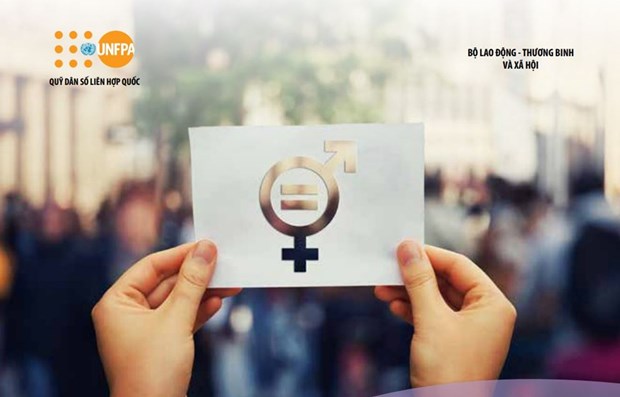
Illustrative image (Photo: VNA)
In her remarks, Deputy Minister of Labour, Invalids and Social Affairs Nguyen Thi Ha said Vietnam has seen encouraging progress in promoting gender equality, with positive changes in attitudes and behaviours among power holders, civil servants and citizens, contributing to heightening the role and position of women in the family and society.
Ha, who is also Standing Vice Chairperson of the National Committee for the Advancement of Women in Vietnam, noted that the country has been recognised by the international community for its efforts in gender equality, adding that the enforcement of the law, however, still faces various challenges.
Both men and women actually suffer the impact of gender inequality but women and girls are the most vulnerable, she noted.
The deputy minister went on to say that the review provides realistic comments and assessments about the Law on Gender Equality, which should be revised and amended in the time to come.
UNFPA Representative Naomi Kitahara said that, over the past decade, Vietnam has counted among Asia-Pacific nations achieving progress in gender equality, with the most considerable move seen in advancing women’s rights and empowerment in the areas of healthcare and education through improving the legal framework and institutions.
Gender equality, one of the 17 Sustainable Development Goals, is not only a basic human right but also fundamental to a peaceful and prosperous society in Vietnam, she said.
The review was conducted from June 2018 to June 2019 and focuses on an assessment of the Law on Gender Equality’s consistency in relation to international human rights standards and other Vietnamese laws and the effectiveness of the implementation of the law by those responsible since it came into effect in 2007. It also identifies key gaps to inform the revision of the law and ensure better implementation and provides recommendations for amendments and supplementation.
The report reveals that in the National Assembly (NA) elections for the 2016-2021 term, 26.8 percent of representatives elected were women, compared to the average of 19 percent in Asia and 25 percent globally./.
VNA
 Vietnam steps up drive for sustainable green projects on path to net zero
Vietnam steps up drive for sustainable green projects on path to net zero



